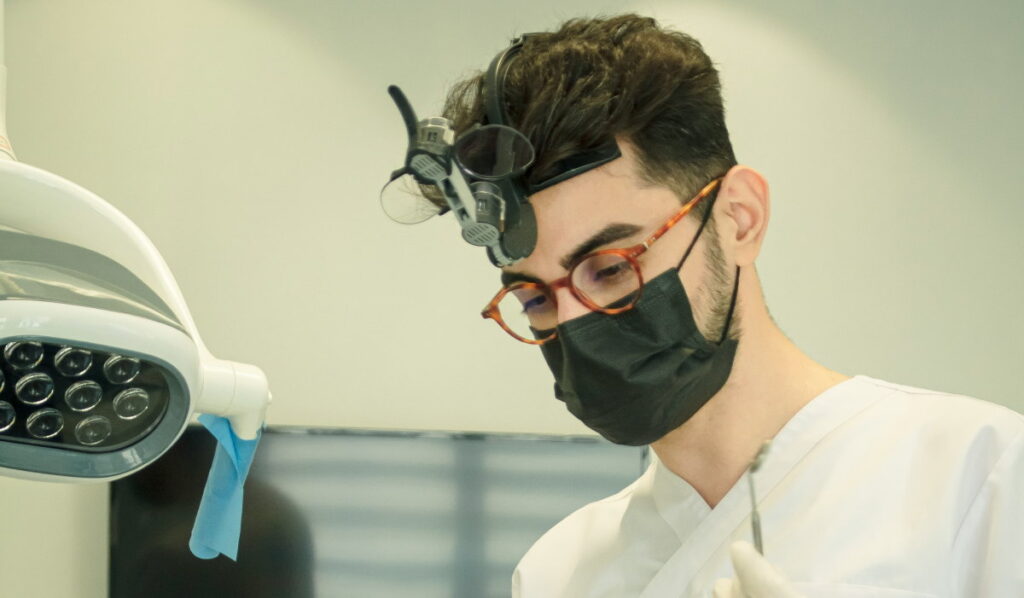The human eye is a complicated organ, made up of several different components that contribute to our ability to see what’s in front of us. It only makes sense that there are a variety of professionals in charge of studying, diagnosing, and treating the eye.
When something isn’t right with your vision or you’re experiencing discomfort in our eye, you turn towards professional opinions and treatment. But how do you know which professional to see?
When it comes to your health, including the health of your eyes, it’s always worthwhile to be informed. Failure to do so could result in a lot of time wasted and possible the progression of symptoms.
In this article, we’re going to settle the confusion, breaking down the roles, main differences, and training of opticians, optometrists, and ophthalmologists.
Similarities
These three different professionals have very little in common, so it’s important you seek out the right one when you’re dealing with an eye issue. In fact, their only similarity is they work with the eyes, which also produces the like-sounding title starting with ‘Op’.
What is an Optician?

An optician is an eyecare professional that deals with glasses, frames, and lenses, who also have the power to fill prescriptions. They can be thought of similar to a pharmacist – they’re well-trained and knowledgeable, but they are not able to perform operations or hand diagnoses.
Instead, an optician is the best person available to help you find new prescription eyewear. Maybe you recently received a prescription, and you need to get fitted for new pair of glasses. Or maybe you need to adjust an existing prescription. An optician can help you select the proper fit, frame, and lens. Even if you don’t have prescription eyewear, an optician can help you find and fit a new pair of sunglasses or blue-light blocking eyewear.
In BC, opticians must have a two or three-year college certificate in ophthalmic dispensing or optical sciences at minimum, regulated by the College of Opticians of British Columbia.
What is an Optometrist?

An optometrist is the eyecare professional known often as the ‘eye doctor’. As highly educated individuals with the ability to diagnose issues and write prescriptions, an optometrist is the right person to see when you’re experiencing discomfort or loss of vision. Even if your eyes seem perfectly fine, it’s advised that adults should see their optometrist at least once every two years for a check-up. Just like a doctor and dentist, visiting the optometrist is an important piece of looking after your health.
When you visit an optometrist, it’s completely normal to expect questions about your medical history, symptoms, and lifestyle. Your optometrist will use this conversation to inform their diagnosis, determine what could be wrong with your eyes, and discover what you’re at risk of.
If you’re dealing with an eye condition like cataracts, glaucoma, dry eyes, or macular generation, an optometrist can write you prescriptions to help with your symptoms and try to maintain your vision. And if you were injured or are having trouble seeing, an optometrist will work with you to provide vision therapy and low-vision aids.
To become an optometrist, you must have training at a university-based school of optometry and successfully pass a national exam, regulated by The College of Optometrists of British Columbia.
What is an Ophthalmologist?

If you need surgery or another complicated procedure done to your eye, that’s when you need to see an ophthalmologist. These professionals are medical doctors licensed to practice medicine along with diagnosing, prescribing, and treating conditions of the eye.
If you have a serious eye condition, your optometrist can diagnose the issue before referring you to an ophthalmologist if necessary. Often, the optometrist will be able to treat the issue, but if you need cataract surgery, laser corrective surgery, or other serious procedures.
Ophthalmologists also have the ability to perform eye exams and checkups, but you typically won’t see them for this unless recommended by your optometrist.
After completing an undergraduate degree, ophthalmologists must do five to six years of specialty residency training, and potentially two additional years of subspecialty training. They must also complete certifying examinations of the Royal College of Physicians and Surgeons of Canada and licensing by the provincial or territorial licensing authority.
An ophthalmologist is not someone you can just call up and book an appointment with. You’ll need a referral from an optometrist or doctor to see one, so don’t worry about which professional you need to see. Your optometrist is the one to see first, and from there they’ll tell you the best way forwards.
If it’s been a while since you’ve had an eye exam, contact Inner Harbour Optometry. An optometrist can detect early eye issues, and work with you to correct your vision. Complete our online booking form or visit one of our two downtown Victoria locations at 1701 Douglas Street or 1411 Cook Street.
